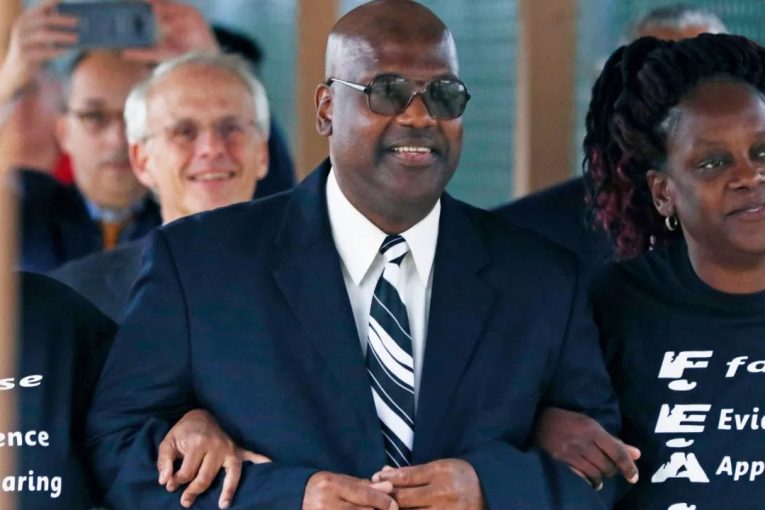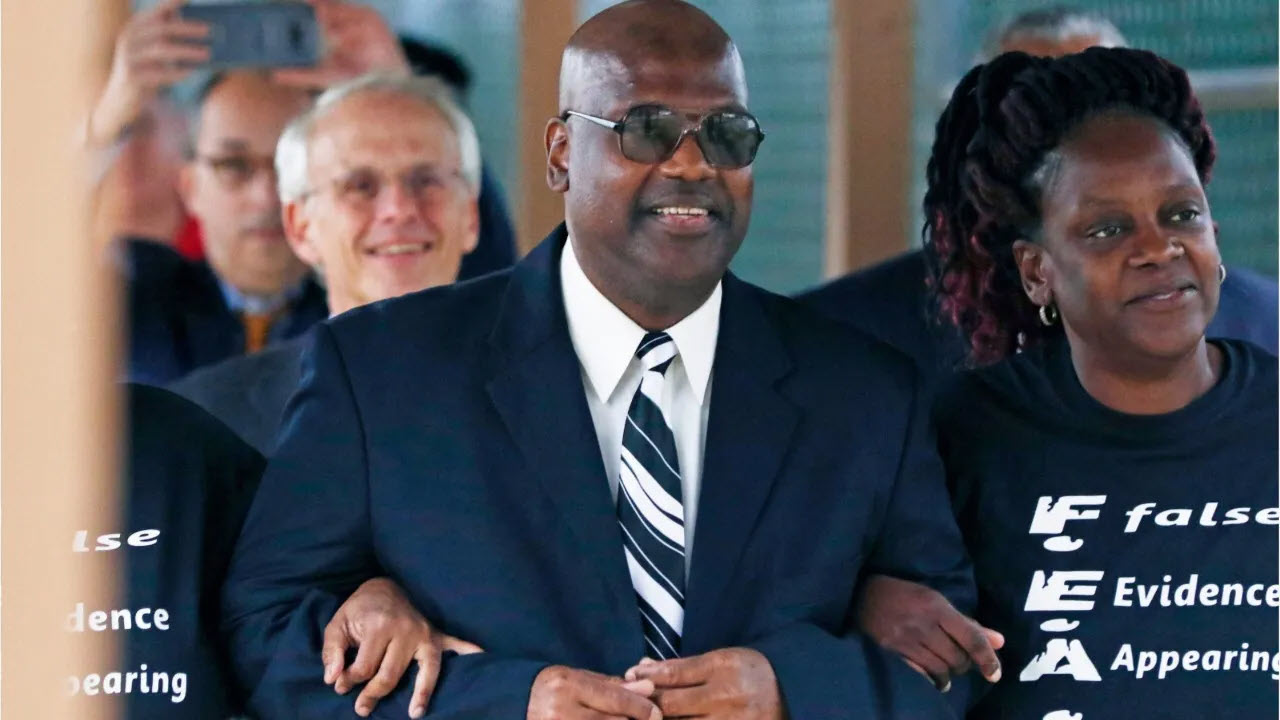

By Michael Wheeler and Julia Asby
MISSISSIPPI – After serving 23 years in prison for a crime he didn’t commit, the Circuit Court of Montgomery County, Mississippi, this week awarded Curtis Flowers $500,000 as compensation for his wrongful imprisonment.
Flowers was arrested and charged with four murders in a shooting at a local furniture store in Winona, Mississippi, in 1996. Flowers faced trial six times throughout his incarceration, and was sentenced to, and removed from, death row four times, most recently in 2010.
The U.S. Supreme Court overturned his latest conviction and sent it back to the Montgomery County Court. After being released on bail in December 2019, charges against Flowers were dropped in  September 2020.
September 2020.
This week’s ruling stipulated that Flowers be compensated $50,000 per year wrongly imprisoned, to be capped at $500,000 and paid out in 10 annual installments of $50,000. The State will also pay Robert B. McDuff, Flowers’ attorney, $50,000 as part of the agreement. The judgment was submitted by Circuit Court Judge George Mitchell on March 2.
This state law allowing for compensation in the case of wrongful imprisonment is a relatively recent development, dating to 2009. It covers wrongful felony convictions, and as a condition of receipt of funds requires that defendants forfeit their right to take further action against the state.
While this award will undoubtedly help the Flowers family, the law only offers compensation up to 10 years of wrongful imprisonment. Flowers served 23 years in prison but is unable to be fully compensated for the totality of his time due to the law’s restrictions.
In order to obtain court-ordered funds, Flowers must sign a release giving up his rights to all claims against the State for the charges that resulted in his incarceration.
Michael Wheeler is a junior at UC Davis, where he studies History and Economics. He is from Walnut Creek, California.
Julia Asby is a third year student at UC Davis majoring in Political Science with a minor in Sociocultural Anthropology. She is originally from Sacramento.
To sign up for our new newsletter – Everyday Injustice – https://tinyurl.com/yyultcf9
Support our work – to become a sustaining at $5 – $10- $25 per month hit the link:
This the podcast that played a big role in setting Curtis Flowers free. An engaging listen.
I don’t know how the author of this article can make the determination that Flowers did not commit this crime. He was convicted four times on some fairly compelling evidence and after six trials the DA’s office decided to drop the case. Unless I’m missing something how do we really know that Flowers did not commit the crime?
Flowers had been recently fired from the business where the four murders took place. The murder weapon was never recovered but it was determined that the weapon was a 38 caliber. It just so happened that Flower’s uncle reported his 38 had been stolen out of his unlocked car the morning of the murders. The forensics of the bullets at the murder scene matched bullets retrieved that Flower’s uncle had shot into a wooden beam. Gunshot residue was found on Flower’s right hand. A size 10 1/2 bloody tennis shoe footprint was found next to one of the bodies and the same type of 10 1/2 tennis shoes were found at Flower’s girlfriend’s house and yes, Flower’s shoe size was 10 1/2.
Flower’s Uncle? Can you provide a credible link that said the gun was his uncle’s? Because what I followed was that the gun belonged to Doyle Simpson, no relation to Curtis Flowers. Doyle Simpson was originally considered a potential suspect.
“Police found five shell casings that were determined to have come from a .380-caliber semi-automatic pistol. Doyle Simpson, who was Flowers’s uncle, came under suspicion when he reported that a pistol of that type and caliber had been stolen from the glove compartment of his car in the parking lot of the factory where he worked.”
https://www.law.umich.edu/special/exoneration/Pages/casedetail.aspx?caseid=5808
One of the victim’s son still thinks Flowers is the killer:
https://www.wlbt.com/2020/09/05/son-murder-victim-journalist-who-worked-flowers-case-react-decision-dismiss-case/
“One of the victim’s son still thinks Flowers is the killer:”
Common phenomenon. You will see cases where DNA clearly exonerates the individual where the victim’s family still believes they are the killer.
Even memory is tricky. For example, Jennifer Thompson still saw the face of Ronald Cotton as her rapist, even after DNA conclusively ruled him out, implicated another man, who confessed.
After going back to a couple of sources, Doyle Simpson was described as ‘a distant relative,’ and a ‘step-uncle.’
Here’s a podcast that has a lot of discussion on the gun in this case:
In the Dark: Episode 3: The Gun
It’s not the author who made the determination, a state judge did when he awarded Flowers with the compensation.
I don’t know that the judge actually determined that or if it was more about jury selection and other questions raised about the evidence years later.
The judge issued the order (here) and found that the Claimant “meets the requirements set forth by the Legislature in Miss. Code Ann (section) 11-44-1.”
“The Legislature finds that innocent persons who have been wrongly convicted of felony crimes and subsequently imprisoned have been uniquely victimized, have distinct problems reentering society, and should be compensated.”
Given that, I believe that the reporter is justified in reporting it as it was reported.
Several key witnesses later recanted crucial testimony in the case, often citing pressuring tactics by the police investigator to give a narrative that fit the case they were trying to build.